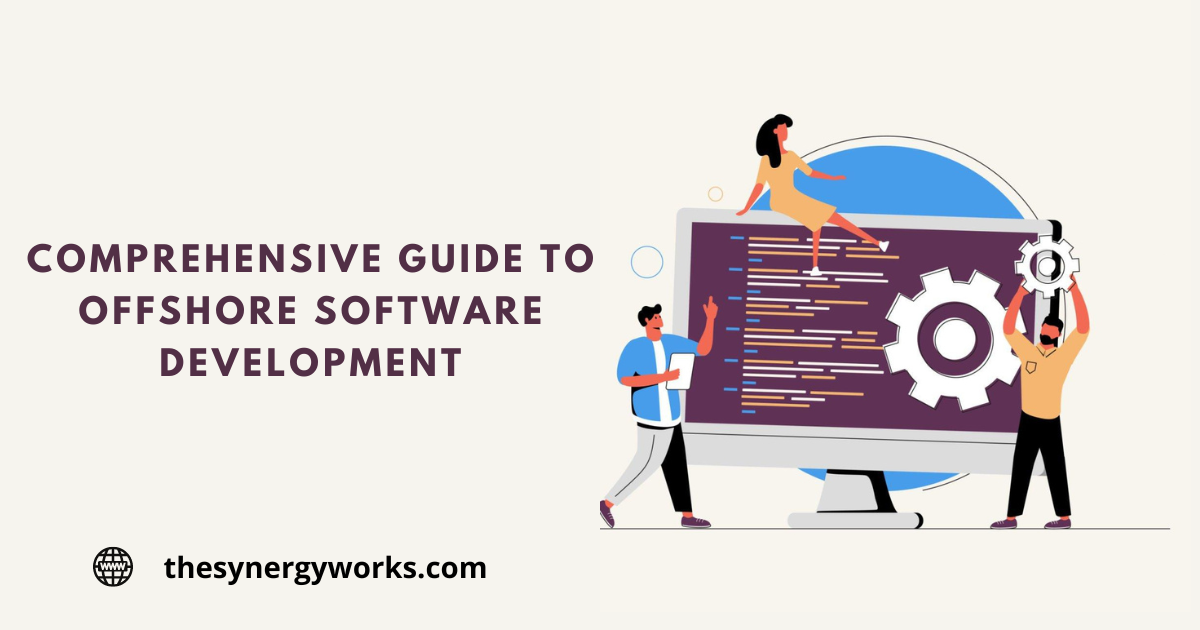Offshore software programming opens up a world of opportunities for businesses looking to optimize their development processes and foster global collaboration.
As organizations increasingly turn to offshore solutions, understanding the nuances of this approach becomes crucial for success.
Overview of Offshore Software Programming

Offshore software programming refers to the practice of hiring external teams or individuals in a different country to develop software solutions for a company. This approach has become increasingly popular due to its potential cost savings and access to a larger talent pool.
Benefits of Offshore Software Programming
- Cost-effectiveness: Companies can benefit from lower labor costs in offshore locations, reducing overall project expenses.
- Access to global talent: Offshore programming allows access to a wider pool of skilled professionals, providing diverse expertise and perspectives.
- Round-the-clock productivity: Time zone differences enable work to continue 24/7, accelerating project timelines and delivery.
- Scalability: Offshore teams can easily scale up or down based on project requirements, providing flexibility in resource allocation.
Challenges of Offshore Software Programming
- Cultural differences: Varying work cultures and communication styles can lead to misunderstandings and project delays.
- Time zone challenges: Coordinating work across different time zones can result in extended project timelines and potential delays.
- Security concerns: Data security and intellectual property protection can be more challenging when working with offshore teams, requiring robust measures to mitigate risks.
- Quality control: Ensuring consistent quality standards and effective collaboration with offshore teams can be a challenge, impacting the overall success of the project.
Factors to Consider for Offshore Software Programming

When considering offshore software programming, there are several key factors that need to be taken into account to ensure a successful outcome. It is important to weigh the cost implications, cultural understanding, and other factors before engaging in offshore software development.
Cost Implications of Offshore Software Programming
- Offshore software programming can often be more cost-effective compared to in-house development due to lower labor costs in other countries.
- However, there may be additional costs involved in terms of communication, travel, and time zone differences that need to be factored in.
- It is important to conduct a thorough cost analysis to determine the overall financial impact of offshore software programming on your project.
Cultural Understanding in Offshore Software Programming
- Cultural differences can greatly impact the success of offshore software programming projects.
- Understanding the cultural norms, communication styles, and work ethics of the offshore team is crucial for effective collaboration.
- Building strong relationships and trust with the offshore team through cultural understanding can lead to better project outcomes.
Best Practices in Offshore Software Programming
Effective offshore software programming requires adherence to best practices to ensure successful project outcomes. This involves implementing strategies for communication, project management, and collaboration. Let’s delve into the key aspects that contribute to the success of offshore software programming projects.
Examples of Successful Offshore Software Programming Projects
Successful offshore software programming projects include collaborations between companies in different countries to develop high-quality software within budget and timeline constraints. For instance, a multinational corporation partnered with an offshore development team to create a complex mobile application that met the client’s requirements and exceeded expectations. This project showcased the effectiveness of offshore collaboration in delivering innovative software solutions.
Communication Strategies for Effective Offshore Software Programming
Clear and consistent communication is essential for successful offshore software programming. Establishing regular meetings, using collaboration tools, and maintaining open channels of communication help bridge the distance between teams. Additionally, defining communication protocols, setting expectations, and providing regular updates ensure alignment and transparency throughout the project lifecycle. Effective communication minimizes misunderstandings, enhances productivity, and fosters a collaborative working environment.
Role of Project Management in Overseeing Offshore Software Programming
Project management plays a crucial role in overseeing offshore software programming projects. Project managers are responsible for defining project goals, creating timelines, allocating resources, and monitoring progress. They facilitate communication between onshore and offshore teams, resolve issues, and ensure that project milestones are met. Effective project management involves setting clear objectives, establishing key performance indicators, and implementing agile methodologies to adapt to changing requirements. By overseeing the project from initiation to delivery, project managers ensure the successful execution of offshore software programming projects.
Technologies and Tools for Offshore Software Programming

Offshore software programming relies on a variety of technologies and tools to facilitate collaboration and development across different locations. These technologies play a crucial role in ensuring seamless communication, version control, and project management.
Popular Technologies Used in Offshore Software Programming
- Programming Languages: Java, Python, C++, JavaScript are commonly used for offshore software development.
- Frameworks: React, Angular, Spring Boot, Django are popular frameworks for building scalable and robust software applications.
- Cloud Services: AWS, Azure, Google Cloud provide infrastructure and services for hosting applications and data storage.
- Database Management Systems: MySQL, PostgreSQL, MongoDB are frequently used for managing data in offshore software projects.
Version Control Systems in Offshore Software Programming
Version control systems like Git, SVN, and Mercurial are essential tools for offshore software programming as they allow developers to track changes, collaborate on code, and maintain a history of revisions. These systems enable teams to work on the same codebase simultaneously, reducing conflicts and ensuring code integrity throughout the development process.
Impact of Remote Collaboration Tools on Offshore Software Programming
- Communication Tools: Platforms like Slack, Microsoft Teams, and Zoom facilitate real-time communication, video conferencing, and instant messaging among offshore teams.
- Project Management Tools: Tools like Jira, Trello, and Asana help in tracking tasks, assigning responsibilities, and monitoring project progress across distributed teams.
- Screen Sharing and Remote Access Tools: Software such as TeamViewer, AnyDesk, and Remote Desktop allow developers to collaborate by sharing screens, debugging code, and providing remote assistance.
Final Thoughts
Embracing offshore software programming can lead to enhanced efficiency, cost savings, and access to a diverse talent pool, making it a strategic choice for modern businesses.
Common Queries
What are the key benefits of offshore software programming?
Offshore software programming offers cost savings, access to global talent, and round-the-clock development cycles.
How important is cultural understanding in offshore software programming?
Cultural understanding is crucial for effective communication, collaboration, and project success in offshore software programming.
Which technologies are commonly used in offshore software programming?
Popular technologies include cloud computing, Agile methodologies, and virtual project management tools.
